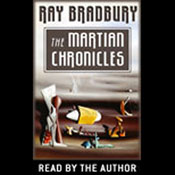As my faithful readers (all two of you) may recall, I haven't blogged much since February because I was busy doing physical therapy for tendonitis (tennis elbow type) while working full-time. The therapy was in Lansing (an hour away) because that was the only place where I could get low-level pulsed-laser therapy in addition to the usual stuff. That 6-hours-a-week really ate into my usual work time, so I was behind all semester. I can't tell you how relieved I was when the semester was finally over!
At first the therapy helped a lot. The pain decreased tremendously and instead of looking damaged/atrophied, my elbow looked almost normal. It even quit hurting when the weather changed. After four weeks, it improved so much that I began to hope PT would heal my tendon once and for all, especially when my sports doc ordered four more weeks of therapy in hope of doing just that.
During week 5 or 6, I had a flare-up. I was lifting something (I don't remember what) out of the grocery cart when pain suddenly shot up my arm. I do remember that the item wasn't heavy and that I was very surprised by the pain. Unfortunately, it didn't improve even with more physical therapy.
I saw the sports doc again when I finished therapy and he decided it was time to talk about surgery. After a couple discouraging doc visits, including a second opinion from a hand/arm specialist with no bedside manor, I was referred to Dr. Rook in Rochester. I really like him and his bedside manor! Fri., May 22 he'll be doing surgery to repair my tendon.
The surgery is outpatient so I'll be back home the same day. Dr. Rook says the tendon pain will go away as soon as he fixes the tendon (removes damaged area and sews everything back together). Recovery will take 6-12 weeks, during which I can't lift even a gallon of milk until Dr. Rook says I'm ready.
Right now my arm still looks really swollen and it's pretty sore. (I can't take my pain med the week before surgery since it may cause bleeding.) I'm am relieved and excited to know that soon it will be fixed and the chance of recurrence is very low. After four years of chronic pain, I'm ready to say good-bye to tendonitis!
I'm not sure how much I'll be able to type, so after the surgery it might be a while before I'm blogging again.




 Audio book: The Martian Chronicles by Ray Bradbury, read by Ray Bradbury
Audio book: The Martian Chronicles by Ray Bradbury, read by Ray Bradbury